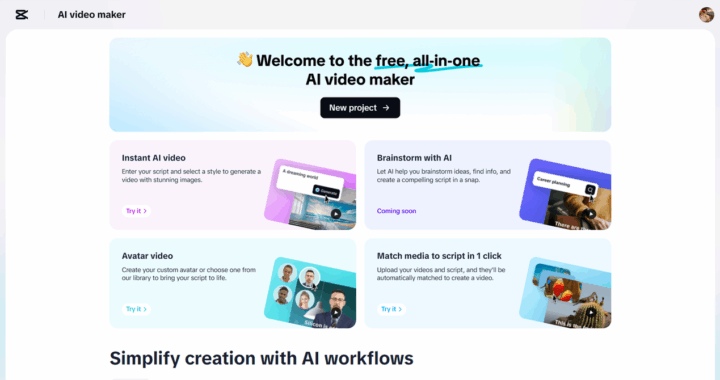5 Furniture Store Software Programs for Small Businesses

Running a furniture store involves juggling multiple tasks—inventory management, order tracking, warehouse management, and customer relationship management, just to name a few. Finding a software solution that can handle all these needs without costing a fortune can be challenging. To help you navigate the options, we’ve compiled a list of the top furniture store software platforms designed to streamline your operations.
Shopify Retail: Ideal for Omnichannel Sales
Why We Recommend It:
Shopify retail excels in providing a seamless omnichannel experience, allowing you to manage both in-store and online sales from a single platform. Its powerful e-commerce tools make it a top pick for businesses looking to expand their online presence.
Key Features:
- E-commerce Platform: Get access to a best-in-class e-commerce solution with customizable templates and advanced features for managing online sales.
- Inventory Management: Track stock levels in real-time, manage orders, and receive low-stock alerts to avoid stockouts.
- Payment Processing: Shopify Payments and PayPal are pre-integrated, making it easy to process transactions both online and in-store.
- Delivery Tools: Manage orders and shipping directly from the POS dashboard, with access to discounted shipping rates from major carriers.
- App Store Add-ons: Extend the functionality of your Shopify store with apps for BNPL, AI chatbots, and more.
Cons:
It requires an e-commerce subscription to access POS tools, and the costs can be added up with add-ons.
Considerations:
Shopify’s pricing can be steep, especially when you start adding third-party apps to cover functionalities like warehouse management and layaway options. The additional fees can add up quickly, making it important to carefully consider which features are essential for your business.
Zolak: Ideal for Advanced Furniture Visualization and Customization
Why We Recommend It:
Zolak is a top-tier visual commerce platform specifically designed for furniture retailers. It offers an all-in-one solution that includes the Zolak Configurator, Showroom, and Studio, allowing retailers to provide immersive 3D experiences for their customers.

The platform’s standout feature is its advanced customization capabilities, enabling customers to modify and visualize furniture items in real time, making it an ideal solution for stores that prioritize customer experience and high-level personalization.
With AI-driven tools for space digitization, object detection, and advanced photorealism, Zolak empowers retailers to create highly personalized and engaging shopping environments.
Key Features:
- 3D Furniture Visualization and Customization: Allow customers to visualize and customize furniture items in real time, providing a highly interactive shopping experience.
- Omnichannel Integration: Seamlessly connect online and in-store experiences, offering a consistent customer journey.
- AI-Driven Personalization: Utilize AI tools for space digitization, object detection, and advanced personalization.
- Photorealism: Zolak Studio supports high-output, photorealistic image creation, enhancing product presentation across all channels.
- Warehouse Management: Integrated tools for managing inventory and warehouse operations efficiently.
- Delivery Tools: Streamline delivery processes with advanced scheduling and tracking capabilities.
- eCommerce Integration: Easily integrates with popular eCommerce platforms, ensuring a smooth customer experience both online and offline.
Cons:
Requires initial setup for best performance
Considerations:
Zolak Vosial Commerce offers a highly immersive experience, allowing customers to visualize furniture in real time, which can significantly enhance engagement and satisfaction. The platform’s AI-driven tools for space digitization and personalization are powerful features that can set your store apart in a competitive market. However, successful implementation requires careful planning, particularly for larger product catalogs, as higher-tier plans may be necessary to fully leverage its capabilities. Additionally, the initial setup can be more involved, so allocating resources for this phase is crucial for maximizing Zolak’s potential.
Square for Retail: Ideal Free Option
Why We Recommend It:
Square is a great choice for small businesses, offering a forever-free base plan that includes essential features like POS, inventory management, and an ecommerce platform. It’s particularly well-suited for businesses that require mobility, with a POS app available for both iOS and Android devices.
Key Features:
- POS System: A customizable checkout interface that includes tools for managing discounts, customer profiles, and loyalty programs.
- Inventory Management: Real-time tracking, barcoding, and low-stock alerts help you stay on top of inventory levels.
- Mobile Functionality: With a free POS app and mobile hardware options, Square is ideal for businesses that need to manage sales on the go.
- Omnichannel Sales: Streamline sales across in-store and online channels, with integrations available for Google, Instagram, and Facebook.
Cons:
Limited support hours and the absence of warehouse management tools.
Considerations:
Square locks you into its payment processing system, which may not be ideal if you prefer another merchant service. Additionally, advanced features like warehouse management and granular inventory controls are only available on the paid plans.
Lightspeed Retail: Ideal for Handling Large Inventories
Why We Recommend It:
If your furniture store deals with large and complex inventories, Lightspeed Retail is a powerful tool designed to handle the challenges of managing extensive product catalogs. It integrates vendor catalogs and ordering directly into the POS, making it easier to manage stock levels and vendor relationships.
Key Features:
- Advanced Inventory Management: Vendor catalogs, purchase orders, and custom workflows help you manage large inventories efficiently.
- Reporting and Analytics: Access advanced reporting tools, including custom reports, to gain insights into sales performance and inventory turnover.
- Customer Support: Enjoy 24/7 phone support and free onboarding assistance to get your system up and running smoothly.
- Custom API: Build custom tools and workflows tailored to your specific business needs using Lightspeed’s API.
Cons:
High pricing and locked-in payment processing with Lightspeed Payments.
Considerations:
Lightspeed’s higher price point may be a barrier for smaller businesses. Additionally, e-commerce functionality is not included in the base plan, and you’re required to use Lightspeed Payments for processing, limiting your flexibility in choosing a payment provider.
MicroBiz: Ideal for Warehouse Management
Why We Recommend It:
MicroBiz is tailored for businesses that need robust warehouse management features.

It offers comprehensive tools for tracking inventory across multiple locations, managing purchase orders, and automating stock replenishment.
Key Features:
- Warehouse Management: Track inventory across multiple locations with tools for barcode scanning, cycle counting, and low-stock alerts.
- Purchase Order Management: Automate purchase orders and manage vendor relationships from a single platform.
- POS Integration: MicroBiz integrates with your POS system, ensuring that inventory levels are updated in real-time as sales are made.
- User-Friendly Interface: The intuitive interface makes it easy to manage complex inventory tasks without a steep learning curve.
Cons:
Limited integrations with third-party e-commerce platforms.
Considerations:
While MicroBiz excels in warehouse management, it lacks some of the advanced features offered by other platforms, such as e-commerce integration and BNPL options. It’s best suited for businesses that prioritize warehouse management over other functionalities.
Conclusion
Each of these software platforms offers unique strengths that can help you manage your furniture store more effectively.
When selecting an e-commerce tool, consider factors like your technical skills, budget, SEO needs, mobile-friendliness, and the tool’s ability to scale with your business. Understanding these aspects will help you choose tools that not only attract users but also contribute to your business’s long-term growth.

 Ultimate 3 Sites For Purchasing Instagram Followers
Ultimate 3 Sites For Purchasing Instagram Followers  Use AI Video Maker to Launch Seasonal Greetings That Wow
Use AI Video Maker to Launch Seasonal Greetings That Wow  How to Choose the Perfect Homecoming Dress
How to Choose the Perfect Homecoming Dress